Commander Says IRGC 'Put Up' With 'Deceived' Protesters
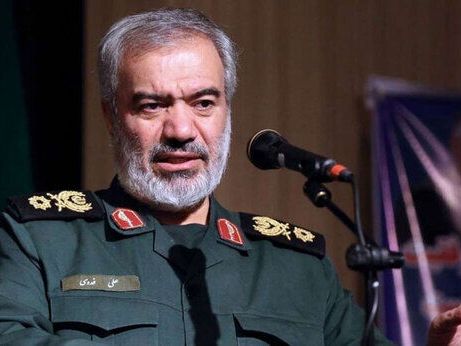
A top Revolutionary Guard commander says anti-government unrest in Iran persists because there are protesters who have been “deceived”, presumably by foreigners.

A top Revolutionary Guard commander says anti-government unrest in Iran persists because there are protesters who have been “deceived”, presumably by foreigners.
Deputy commander of the Guards Ali Fadavi said Monday that the IRGC tried to appease and put up with those who were deceived and joined the protests, and that is the reason why the unrest has not ended, otherwise “it would not have lasted more than six days.”
Fadavi also claimed that sixty government agents have been killed during the suppression of protests that began in September following the death of Mahsa Amini in police custody. Some believe fewer government agents have been killed and the IRGC uses the identity of dead protesters as its own “martyrs”.
Once again linking the nationwide protests to foreign conspiracies, he said, “We were dealing with deceived people inside the country, and we put up with them.”
“Deceived” is a term that Ali Khamenei, the Supreme Leader of the Islamic Republic, has used many times to describe the people, especially the young protestors in the streets, emphasizing that the unrest is staged by “foreign enemies.”
Other officials have been repeating Khamenei’s allegations that foreign countries and conspiracies were behind fomenting the protests.
Fadavi, however, did not mention the killing of more than 400 protestors, including children, by government forces, including almost 50 children.
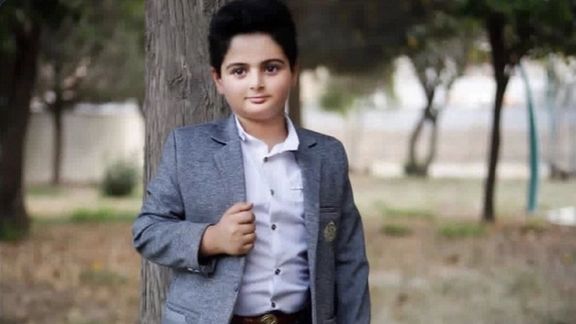
Shocked by the indiscriminate killing of children during ongoing protests in Iran, many are asking the international community to intervene and restrain the regime.
Security forces have killed at least 58 children as young as two in the past two months. Authorities say 54 security forces and regime loyalists were killed in clashes with protesters in the past two months. Many believe government casualties are much lower as in several cases authorities have tried to highjack the victims as their own “martyrs”.
One such victim was ten-year-old Kian Pirfalak who was reportedly shot by plainclothesmen in Izeh in the southwestern province of Khuzestan on November 16. Authorities have blamed “terrorists” for Kian’s death and used his photo in their propaganda posters.
Kian died and his father was seriously injured when the family including Kian’s younger brother came under fire in the family car on their way home on the street.
In a fiery speech at her son’s burial, Kian’s mother said she had no doubt about who had shot her family and implicitly accused Supreme Leader Ali Khamenei of responsibility for her young son’s killing. Authorities have put her under great pressure to retract her accusations.
One of the very first children shot dead by security forces was a two-year-old boy in Zahedan. The boy from a poor family has only been mentioned by his last name, Mirshekar. He was shot in front of his home in a poor neighborhood of Zahedan, capital of southeastern Sistan and Baluchestan Province, on September 30.
The two-year-old boy was one of the 13 children killed during the crackdown which has come to be known as the “Bloody Friday”. A total of 96 people protesting peacefully, and bystanders were shot dead in Zahedan.
Many Iranians on social media are now referring to the Islamic Republic as the “child-killing regime”. They have also created hashtags such as “Child-Killing Khamenei” and “Child-Killing Regime” which are quickly rising in popularity.
Some have highlighted remarks by an extremist regime ideologue, Ali-Akbar Raefipour, who in one of his speeches claimed Israel used child killing as a strategy to break and subdue Palestinians.
“When you are facing popular forces instead of an army you will have to kill people, kill women and children, deliberately. Kill so many that people try to stop those who are fighting [against Israel] and tell them it’s enough, let go,” Raefipour said in the speech.
Probably in reference to such views, and the large number of children killed in such a short time, one per day, many are saying the regime is employing the same tactic and “systematically” targeting children to inspire fear and suppress the protest movement.
Over twenty prominent Iranian rights defenders urged the United Nations to condemn Iran's government for killing, wounding, and arresting children in a letter Sunday a copy of which Iran International has received.
The letter which is addressed to the secretary general of the United Nations and other UN officials, including secretary general and the chair and members of the Committee on the Rights of the Child, United Nations Human Rights Council, and UNICEF.
The signatories of the letter are all prominent lawyers and rights defenders with a strong record of criticizing human rights violations by the Islamic Republic. They have called for adoption of an international mechanism to document human rights violations by the regime and urged UNICEF to use all the tools at its disposal to make the Iran’s government abide by the Convention on the Rights of the Child (CRC) to which it is a state party.
According to the latest report by Iran Human Rights Activists (HRANA) Saturday, security forces shot or beat to death a total of 402 protesters until Friday. The number of those arrested during this time, including children, is over 16,700 HRANA said in its report.
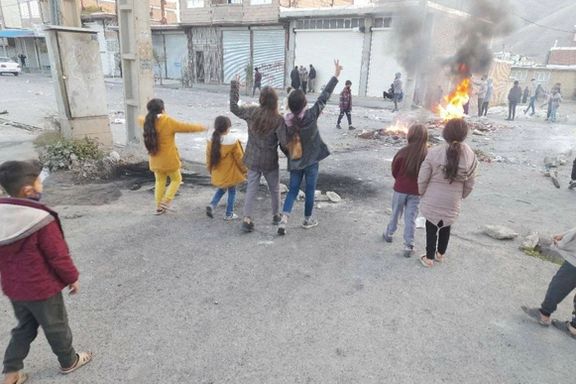
Protests continued Monday with people out on streets chanting slogans and ironically celebrating the loss of their football team at the World Cup as the crackdown is becoming even more harrowing.
Monday was a day of mixed emotions for many Iranians while disturbing footage were released on social media showing the atrocious clampdown on protesters in Kurdish-majority regions as well as sparks of joy among people who – quite counterintuitively – were happy that the country’s national soccer squad suffered its worst ever defeat in a World Cup against England in Qatar.
In many cities across Iran – such as Zanjan, Bandar Abbas in Hormozgan province, and as well as numerous neighborhoods in the capital Tehran, people poured into streets dancing and celebrating with slogans against the regime. Clashes were also reported on Monday night in the city of Karaj, near Tehran.
Many Iranians, who say the Team Melli does not represent the people of Iran but the clerical regime due to their lack of solidarity with the nationwide protests, held gatherings on Monday night and chanted slogans in support of the people in Kurdish cities, who have been struggling against a new level of regime violence, with heavy weapons being used to quell the rallies.
Players of the team, however, remained silent when the Islamic Republic anthem was played at the beginning of the match but people on social media say their show of support is too little, too late. Iranian fans at the stadium were shouting while the anthem was being played and some made thumbs-down gestures in an apparent act of protest against the Islamic Republic. In several videos posted on social media, people can also be heard cheering with each goal England scored. After the match, a group of Iranians held a gathering outside the stadium and chanted “Death to Khamenei.”
According to videos trickling online under a widespread Internet shutdown, the Islamic Republic has started using heavy weapons and modern antiriot techniques against the protesters in Kurdish cities.
In the past few days, the Islamic Republic has intensified its repression on Kurdish-majority cities and towns in western provinces of the country following reports that parts of some small towns have fallen into the people’s hands. The majority of Iran's 10 million Kurds live in the western parts of the country. It has also launched repeated attacks against Iranian Kurds sheltering in Iraqi Kurdistan.
Whenever people think the Islamic Republic’s inhumane acts cannot get any worse, some report of ruthlessness proves them wrong. In a report released on Monday, CNN revealed 11 cases of sexual violence against male and female protesters including boys, in Iranian detention centers, almost all of which occurred in Iran's Kurdish areas. It has also documented rapes that were taped for blackmail.
Confirming the veracity of the claims, one of CNN’s sources said about a case, “When she first came in, (the officers) said she was hemorrhaging from her rectum… due to repeated rape. The plainclothes men insisted that the doctor write it as rape prior to arrest.”
Also on Monday, European Parliament President Roberta Metsola said “there will be no direct contact between the Parliament and Iranian officials until further notice,” adding that the Islamic Republic must stop its oppression of legitimate protests. In reaction to the death sentences imposed on protesters, Metsola urged Iranian authorities to “stop, here and now”.
Earlier in the month, The UN’s Third Committee approved a draft resolution on Iran’s human rights situation, expressing concern at the alarmingly high frequency of the death penalty in the country. Moreover, the UN Human Rights Council will also adopt a resolution aimed at holding the Islamic Republic accountable on November 24.
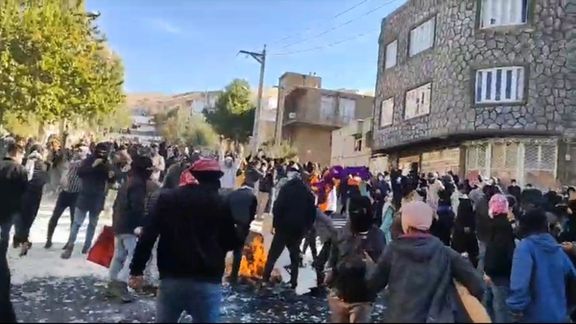
Cyberspace watchdog NetBlocks has confirmed a major disruption to internet service in Iran amid the regime’s intensified attacks on Kurdish cities.
Netblocks that monitors cybersecurity and the governance of the Internet announced in a tweet on Monday that network traffic data show a major disruption to internet service in Iran as mobile internet is cut off for many users.
The incident comes amid a wave of new antigovernment protests and reports of casualties, mainly in the western Kurdish cities.
Several videos shared on social media on Monday showed crowds in the Kurdish-populated city of Javanrud attending to one injured man, and seeking to retrieve the body of a dead protester lying on the street.
Hengaw, a Kurdish Iranian rights group, shared a video of security forces being dispatched to the Kurdish cities of Mahabad and Bukan in dozens of pickups, motorbikes, police cars and one light armored vehicle painted black.
In the past few days, the Islamic Republic has intensified its repression on Kurdish-majority cities and towns in western provinces of the country following reports that parts of some small towns have fallen into the people’s hands. The majority of Iran's 10 million Kurds live in the western parts of the country. It has also launched repeated attacks against Iranian Kurds sheltering in Iraqi Kurdistan.
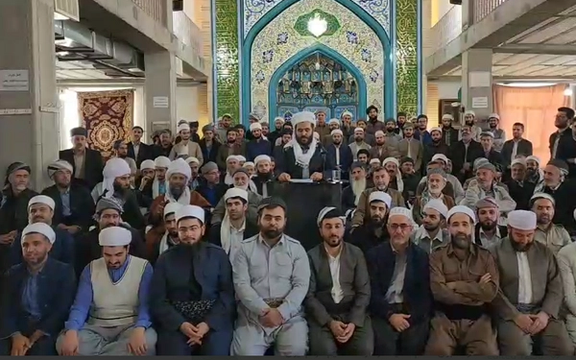
A group of Sunni religious leaders and Friday prayer Imams in Iran’s Kordestan province have called for a referendum under the supervision of international bodies in the country.
In a joint video statement on Monday, the Sunni clerics of Sanandaj and Dehgolan in western Iran called for a plebiscite with the presence of religious and national leaders, as well as neutral international observers to “get out of the current situation.”
Earlier, Molavi Abdolhamid, the top Sunni cleric of Zahedan in the southeast had also called for an internationally monitored referendum, saying by killings and suppressing protesters the government cannot push back a nation.
However, his request was met with a harsh rejection by the authorities of the Islamic Republic.
The Sunni Kurdish clerics further called for the unconditional release of all those arrested recently and warned the government against executing protesters.
"Such a terrible act will only arouse the anger of the nation,” they added.
In recent days, despite warnings by international and human rights organizations, the Islamic Republic’s judiciary issued death sentences for some protesters on charges of “War against God.”
They additionally demanded punishment of all those who were involved in killing and injuring protestors.
Ending the censorship of news and stopping the disruption of the internet and social networks are among the other demands raised in the statement.
They also expressed support for protesting students emphasizing that “the presence of security forces in schools and universities is against religion, law, and ethics.”
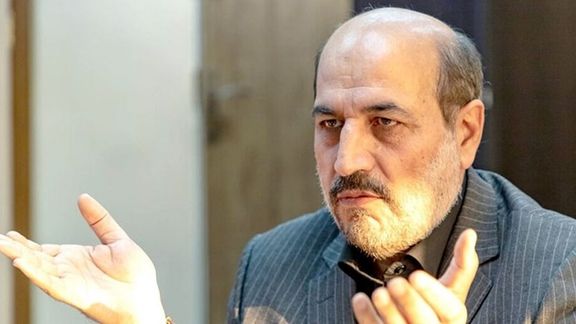
An Iranian lawmaker says the decision about removing internet restrictions depends on the country's security situation, as protests continue.
Lotfollah Siahkali, a member of the Iranian parliament, said that as long as security and intelligence organizations feel there is a problem with the country's security, they will tell the ministry of communications to continue restricting internet access and block social media apps.
Previously, Iran’s Minister of Communications, Isa Zarepour had also admitted that his ministry is not the decision-maker on this matter, in response to questions about the reason for banning Instagram and WhatsApp.
On September 20, amid the nationwide protests to the killing of Mahsa Amini by police, access to Instagram and WhatsApp applications were blocked and no government organization took responsibility.
The Iranian lawmaker also claimed that similar decisions are taken all over the world at a time of crisis but “when the crisis is over, they usually return to normal conditions.”
Meanwhile, the head of the National Security and Foreign Policy Commission of Iran’s Parliament said, “the enemy is attempting to show a turbulent image of Iran using cyberspace.”
Vahid Jalalzadeh stated on Monday that the cyberspace has become “the front line of the enemy because of the failure to follow the orders of the Supreme Leader Ali Khamenei.”
“Many years ago, the Supreme Leader stressed the need to pay attention to the virtual and cultural space of the country, which unfortunately was neglected by the officials, and today the enemy is dominating the virtual space,” added Jalalzadeh.